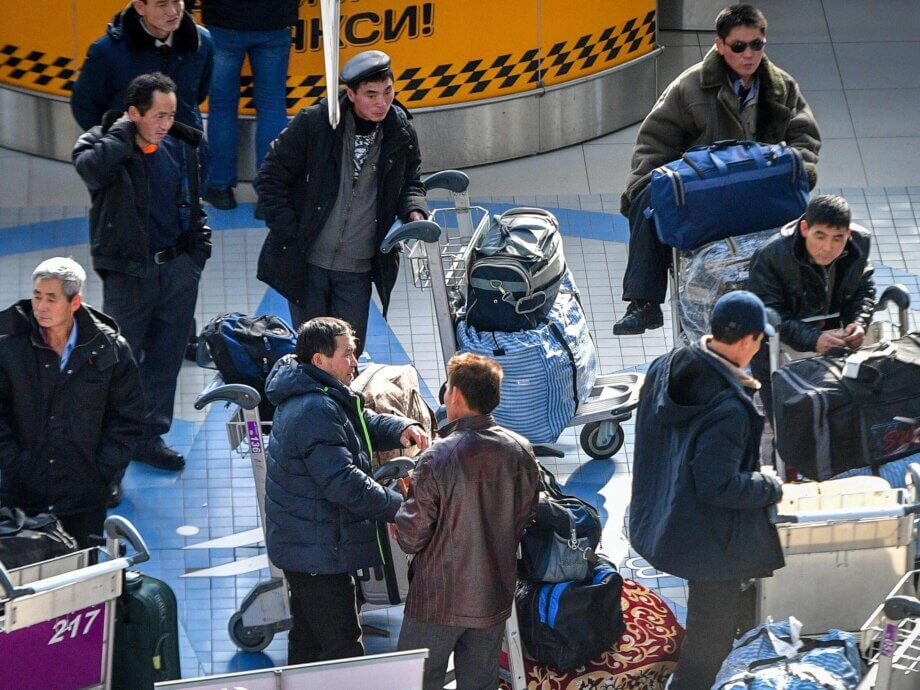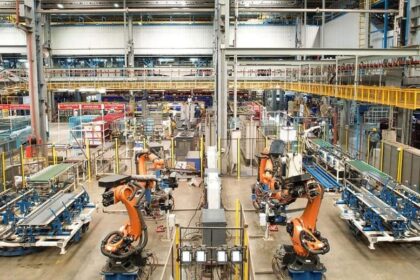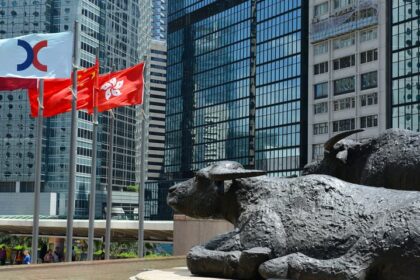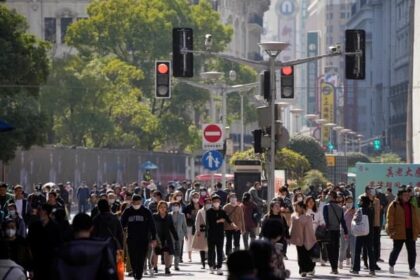China’s Acceptance of North Korean Workers: A Violation of UN Sanctions?
China has recently come under international scrutiny for accepting thousands of North Korean workers into its territory, a move that appears to violate United Nations Security Council (UNSC) sanctions. These sanctions, adopted in 2017, were designed to cut off a crucial source of foreign currency for North Korea, which the international community believes is used to fund Pyongyang’s nuclear and missile programs. Despite these restrictions, multiple reports and investigations indicate that China continues to employ North Korean laborers in various industries, raising concerns about forced labor, human rights abuses, and the effectiveness of international sanctions.
- China’s Acceptance of North Korean Workers: A Violation of UN Sanctions?
- Why Is China Accepting North Korean Workers?
- Forced Labor and Human Rights Concerns
- How Are North Korean Workers Sent Abroad?
- China’s Response and International Reactions
- Broader Geopolitical Context
- Calls for Greater Transparency and Enforcement
- In Summary
According to sources familiar with China–North Korea relations, approximately 3,000 North Korean workers arrived in Hunchun, Jilin Province, by March 2024, with an additional 500 entering Dandong, Liaoning Province, in May. Most of these workers are young women assigned to garment factories and seafood processing plants in China’s northeastern provinces bordering North Korea. Negotiations for the acceptance of North Korean workers are reportedly ongoing in other regions as well, suggesting a broader pattern of labor importation.
Background: The UN Sanctions and Their Rationale
In 2017, the UNSC adopted Resolution 2397, which prohibits member states from providing work authorizations to North Korean nationals and requires the repatriation of all North Korean workers by December 2019. The rationale behind these measures is clear: the wages earned by North Korean workers abroad are largely confiscated by the regime in Pyongyang and used to finance its prohibited weapons programs. The sanctions were a direct response to North Korea’s continued nuclear and ballistic missile tests, which defied earlier international agreements and resolutions.
Despite these clear prohibitions, China is believed to host as many as 100,000 North Korean workers, according to estimates by the United Nations and non-governmental organizations. These workers are employed in a range of sectors, including manufacturing, seafood processing, and, as recent investigations have revealed, the distant-water fishing industry.
Why Is China Accepting North Korean Workers?
China’s decision to accept North Korean workers appears to be driven by a combination of economic and political factors. The Chinese economy, particularly in the northeastern “Rust Belt” provinces, has faced significant challenges in recent years, including population decline, labor shortages, and slowing growth. Many young Chinese are reluctant to work in factories or rural areas, creating a demand for cheap, reliable labor that North Korean workers can fill.
Analysts also suggest that China’s acceptance of North Korean workers is part of a broader strategy to improve bilateral relations with Pyongyang. The relationship between China and North Korea has experienced periods of tension and cooling, particularly during the COVID-19 pandemic when border closures halted the flow of workers. The resumption of labor dispatches may signal Beijing’s intent to rebuild ties with its neighbor, especially as North Korea strengthens its relationships with Russia and as the United States’ approach to North Korea evolves.
Central Government Involvement
Reports indicate that the decision to accept North Korean workers is unlikely to be made at the local government level alone. Instead, it suggests involvement and approval from the central government in Beijing. This centralization underscores the political sensitivity and strategic importance of the issue for China’s foreign policy and domestic economic management.
Forced Labor and Human Rights Concerns
Beyond the question of sanctions violations, the use of North Korean labor in China raises serious human rights concerns. Investigations by the Environmental Justice Foundation (EJF), international media, and human rights organizations have documented widespread abuses faced by North Korean workers, particularly in the fishing and seafood processing industries.
North Korean workers abroad are typically under constant surveillance by their government’s security agents. They are forced to work long hours—often more than 12 hours a day—with the majority of their wages confiscated by the North Korean regime. Workers have little to no freedom of movement, are subjected to harsh living conditions, and are often unable to communicate with their families. These conditions meet the International Labour Organization’s indicators of forced labor.
Case Study: North Korean Labor on Chinese Fishing Vessels
One of the most striking examples of forced labor involves North Korean workers on Chinese-flagged distant-water fishing vessels. According to a 2024 investigation by the EJF, at least 12 Chinese tuna longliners operating in the Indian Ocean employed North Korean crew between 2019 and 2024. Testimonies from Indonesian and Filipino crew members revealed that North Korean workers were kept at sea for up to a decade, transferred from vessel to vessel to avoid detection, and denied basic freedoms such as the ability to leave the ship or use mobile phones.
Steve Trent, CEO and Founder of the Environmental Justice Foundation, highlights the severity of these abuses:
“The use of North Korean labor on board Chinese fishing vessels is a damning indictment of the failure to regulate our oceans. Illegal fishing and human rights abuses can be found almost without exception on board China’s distant-water vessels. However, the use of North Korean forced labor for such long periods is a particularly severe example of the egregious misconduct uncovered by EJF.”
These practices not only violate international labor standards but also undermine the integrity of global seafood supply chains, as products tainted by forced labor can end up in markets across Asia, Europe, and the United States.
How Are North Korean Workers Sent Abroad?
The North Korean government has a long history of dispatching its citizens to work abroad as a means of earning foreign currency. Workers are typically selected by the regime and sent to countries like China and Russia under strict supervision. Their movements are tightly controlled, and they are required to remit the majority of their earnings to the government, with only a small fraction retained for personal use.
During the COVID-19 pandemic, the flow of North Korean workers abroad was temporarily halted as borders closed. Many workers who were already overseas became stranded, unable to return home. As travel restrictions eased in 2023, China began to repatriate some North Korean workers, but recent reports indicate a renewed influx of laborers, marking the first large-scale deployment since the pandemic.
Worker Experiences and Testimonies
Testimonies from crew members and workers reveal the harsh realities faced by North Korean laborers. One Indonesian crew member recounted:
“Six Koreans were not allowed to go home even after they completed their four-year contract. They were just moved from one ship to another.”
Another described the psychological toll of prolonged isolation at sea:
“Every time we saw them, they looked very stressed. Even six months at sea are too long for me. I could not imagine it being for years.”
These accounts underscore the exploitative nature of the system and the lack of agency afforded to North Korean workers abroad.
China’s Response and International Reactions
When confronted with allegations of sanctions violations and forced labor, Chinese officials have generally denied wrongdoing. Lin Jian, a spokesperson for China’s Foreign Ministry, stated:
“China all along carries out offshore fishing in accordance with laws and regulations. China’s relevant cooperation with the DPRK is conducted within the framework of international law.”
However, the evidence presented by NGOs, journalists, and international organizations suggests otherwise. The deliberate efforts to conceal the presence of North Korean workers—such as transferring them between ships to avoid detection at ports—indicate an awareness of the illegality of these practices.
Global Supply Chain Implications
The use of North Korean forced labor in Chinese industries has far-reaching implications for global supply chains. Seafood, garments, and other products produced with North Korean labor can enter international markets, potentially violating import bans and ethical sourcing standards in countries like the United States, the European Union, and Japan. This raises questions about the effectiveness of current monitoring and enforcement mechanisms, as well as the responsibility of companies and consumers to ensure that their purchases are not linked to forced labor.
Broader Geopolitical Context
China’s acceptance of North Korean workers must also be understood within the broader context of regional geopolitics. The relationship between China and North Korea is complex, shaped by historical ties, security concerns, and shifting alliances. As North Korea draws closer to Russia and as the United States’ policy toward Pyongyang evolves, China may see the acceptance of North Korean labor as a means of maintaining influence and stability on its northeastern border.
Additionally, the lack of major celebrations for the 75th anniversary of diplomatic relations between China and North Korea in 2023 was seen by some analysts as a sign of cooling ties. The recent resumption of labor dispatches may be an attempt by Beijing to repair and strengthen this relationship in the face of changing regional dynamics.
Calls for Greater Transparency and Enforcement
Human rights organizations and international watchdogs have called for stronger enforcement of sanctions and greater transparency in global supply chains. The EJF and other groups advocate for measures such as mandatory transmission of ship positions, elimination or close monitoring of trans-shipment practices, and improved port controls to detect and prevent the use of forced labor.
Steve Trent of the EJF emphasizes the need for collective responsibility:
“The ripple effects of this can be felt far and wide, with the fish caught using this illegal labor reaching seafood markets across the world. China bears the bulk of the responsibility, but when products tainted by modern slavery can be found on our own plates, it is clear that collective responsibility needs to be taken by Flag states and regulating bodies as well.”
Without concerted international action, the exploitation of North Korean workers is likely to continue, undermining both human rights and the credibility of international sanctions regimes.
In Summary
- China has accepted thousands of North Korean workers in 2024, primarily in garment factories and seafood processing plants, in apparent violation of UN Security Council sanctions.
- UN sanctions prohibit the employment of North Korean nationals abroad to prevent the regime from earning foreign currency for its weapons programs.
- Investigations reveal widespread forced labor and human rights abuses among North Korean workers in China, especially in the fishing industry.
- China’s acceptance of North Korean labor is driven by economic needs and political considerations, including efforts to strengthen ties with Pyongyang.
- Chinese officials deny wrongdoing, but evidence suggests deliberate efforts to conceal the use of North Korean labor.
- The presence of North Korean forced labor in Chinese industries has significant implications for global supply chains and ethical sourcing.
- Human rights organizations call for stronger enforcement of sanctions and greater transparency to combat forced labor and protect vulnerable workers.












